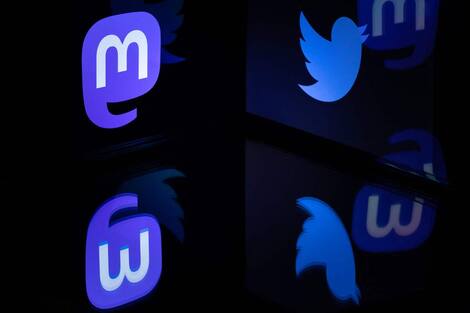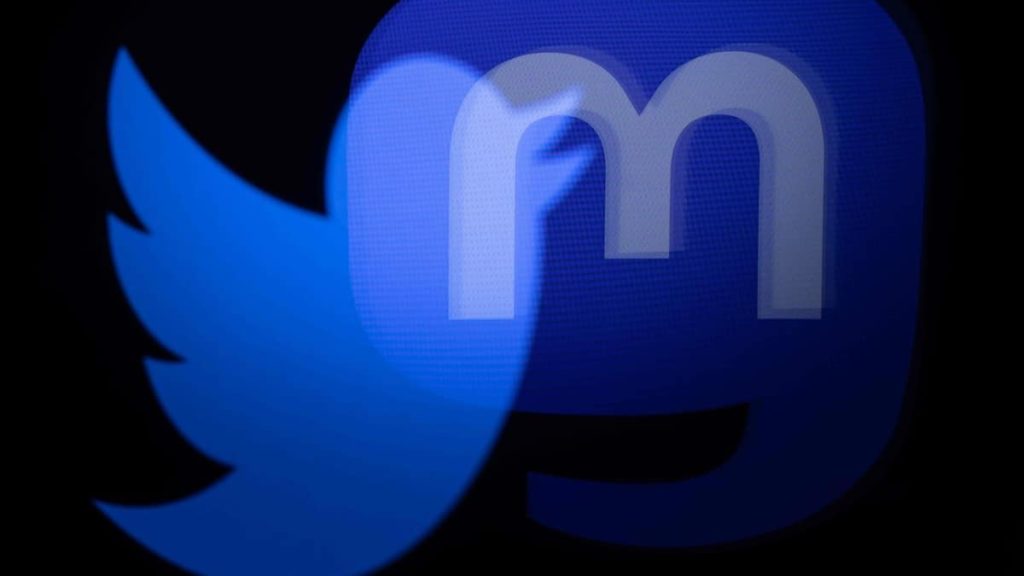Since Elon Musk’s acquisition of Twitter, some users, dissatisfied or worried about the measures announced by his new boss, have decided to move to other platforms.
• Read also: Midterm elections: Elon Musk calls on Americans to vote Republican
• Read also: UN urges Musk to support human rights on Twitter
• Read also: Twitter is laying off about 50% of its employees worldwide
From anger over the mass layoffs plan within the group to fears of rising extremist rhetoric, to opposition to the paid subscription model that Mr. Musk wanted, the grounds for the accusations are numerous.
Where do frustrated Twitter users flee to? How far are they out?

France Press agency
Unknown to the general public a few days ago, Mastodon is experiencing a peak in popularity among Internet users who are interested in the future of Twitter.
Created in 2016 by German developer Eugen Rushko, the site presents itself as a “free and open source decentralized social network” without any advertising.
Concretely, it allows each user to join, according to his centers of interest, the community of his choice, this community that sets its own rules.
Mastodon, which prides itself on being “not for sale”, therefore consists of a network of thousands of independent servers, also called examples. Members can interact provided that the moderation rules of their servers are compliant.
On his personal account, Mr. Roshko says Mastodon reached more than 1 million monthly active users on Monday thanks to the addition of 1,124 servers and nearly 490,000 new users since October 27, the effective acquisition date of Twitter by Elon Musk.
Seduced by the experience, however, many users say they are put off by the counter-intuitive aspect of the platform, highlighting in particular the difficulty of creating an account.
Others regret that content moderation is left to the discretion of group administrators only, citing the risks of arbitrary decisions.

France Press agency
Jack Dorsey
Other potentially attractive platforms for those who want to leave Twitter are still in the development stage.
This is the case of Bluesky, the new venture of Twitter founder Jack Dorsey, who claimed at the end of October that 30,000 people had been queued in 48 hours, or Cohost, which promises that its users will never be sold personal data.
Already established platforms, such as microblogging site Tumblr or voice chat app Clubhouse, have seen a resurgence in popularity in online discussions.
And there are a few other young shoots that pique the curiosity of netizens, including Counter Social and Tribel Social.
Networks like Gab, Parler or Truth Social, the platform launched by Donald Trump, presented themselves as conservative alternatives to Twitter even before it was acquired by Elon Musk. They may also hope to get users back.
At the moment, there is no indication that these alternatives to Twitter are able to compete, let alone surpass the Blue Bird network, which had approximately 238 million daily active users at the end of June.
In a tweet published Monday night to Tuesday evening, Elon Musk confirmed that “the number of Twitter users has increased significantly in the world since the acquisition agreement was announced,” without providing numbers.
“These are the early days,” the billionaire continued. “As Twitter will become by far the most reliable source of truth, it will be indispensable.”
It remains to be seen whether the prominent personalities on Twitter (singers, athletes, politicians) will continue to be active there or will prefer their presence on platforms with a wider audience such as Facebook, Instagram or TikTok.

“Music guru. Incurable web practitioner. Thinker. Lifelong zombie junkie. Tv buff. Typical organizer. Evil beer scholar.”






More Stories
After the discovery of norovirus, these berries should not be eaten.
Mechanics Strike | WestJet Cancels Nearly 700 Flights, Affects Nearly 100,000 Passengers
Three 'basic' Airbnb listings: Owner shares how he easily skirted the rules